A day after CBSE results were announced, a Hyderabad-based data analyst, Prashant Bhattacharji, discovered that the board did not actually do away with their unfair practice of spiking the marks.
look you all! CBSE tricked others into not spiking marks and they did it for their own students. Math, Physics, Chem(latter 2 out of 70) pic.twitter.com/z3u88BzLlm
— The Learning Point (@learning_pt) May 29, 2017
According to Indian Express, Bhattacharji, an electrical engineer based in Hyderabad analysed results of about 25,000 students from over 300 schools in Gujarat and Rajasthan to find out the flaw in this year’s results.
Here’s a graph showing distribution of marks of Bhattacharji’s sample size of 25,000:
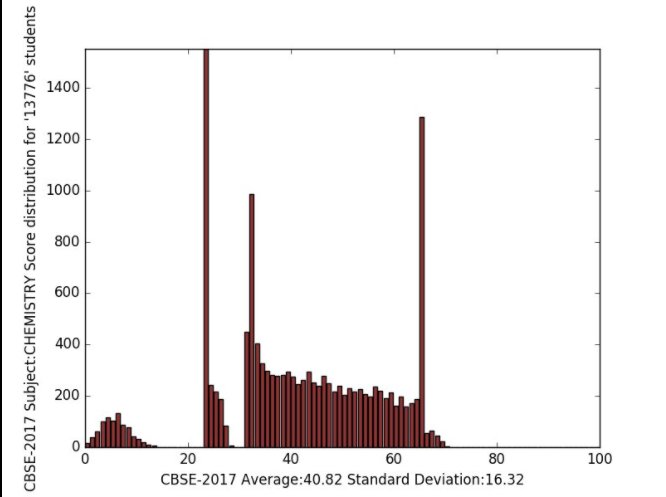
“We expect something roughly resembling a bell-shaped curve, even a skewed one will do. What we see is a distribution badly distorted into a near-uniform distribution with jagged edges and massive spikes at specific points. There is a mix of distortion and inflation,” he told Indian Express.
Here’s another graph. Same sample size, different subject:
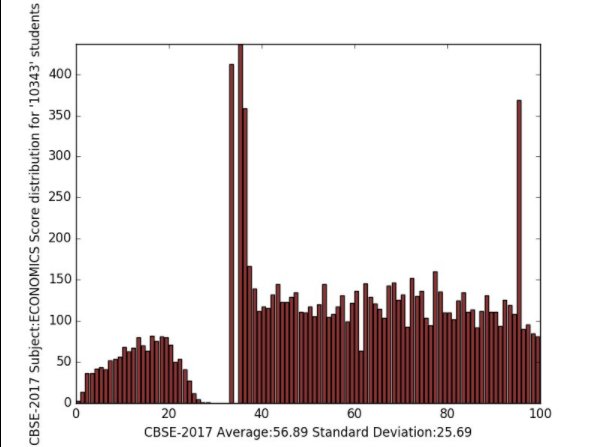
He added that last year, CBSE awarded as many as 16 extra marks to students in Mathematics in the name of moderation. Though the number of students scoring 90 to 95 has dropped this year, this does not rule out the possibility that the board might have awarded five to seven marks extra instead of 16.
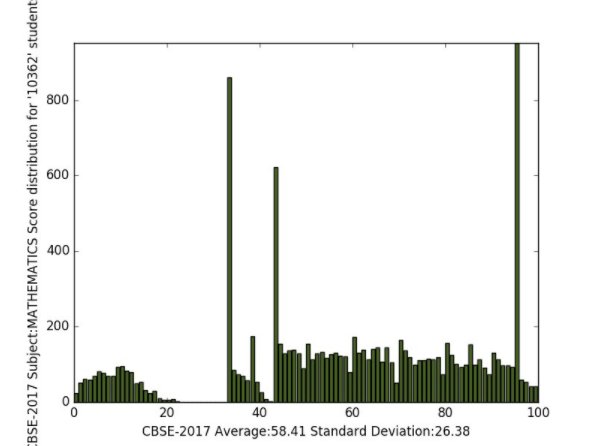
He claimed that there has again been a misuse of ‘moderation’ and CBSE may still have resorted to “a mix of distortion and inflation”.
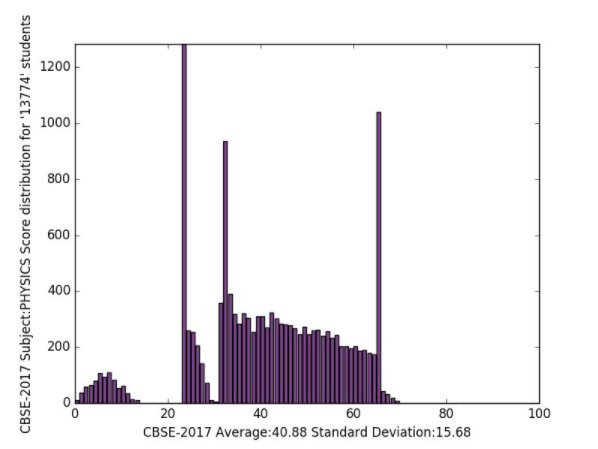
What was the Delhi High Court Order?
The Delhi High Court on 23rd May asked CBSE to continue with its moderation policy as scrapping it in the middle of an academic year would be unfair.
The order came in the wake of a petition against CBSE’s decision on 24th April to do away with its practice of spiking the marks for higher results.
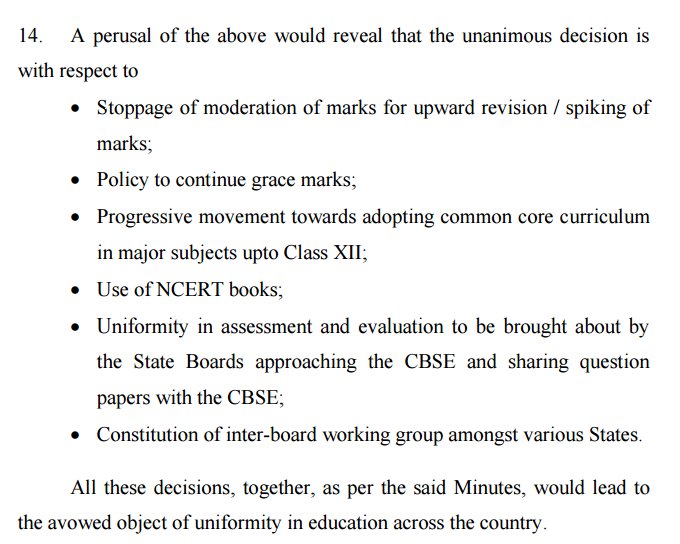
The order however asked CBSE to only continue with moderation and not unfair spiking.
Difference between Moderation and Inflation/spiking
Speaking to ScoopWhoop News Prashant Bhattacharji explained that moderation is a statistical process applied to some very marginal up scaling or down scaling of marks to compensate for an overly difficult or easy question paper or for inter-examiner variability in standards of script-marking. Spiking means to falsify the marks arbitrarily and inflate them without any justification.
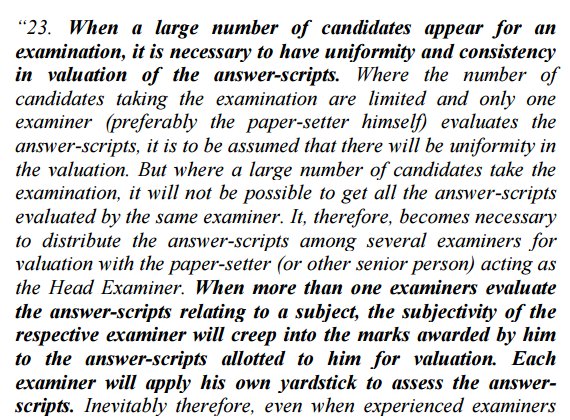
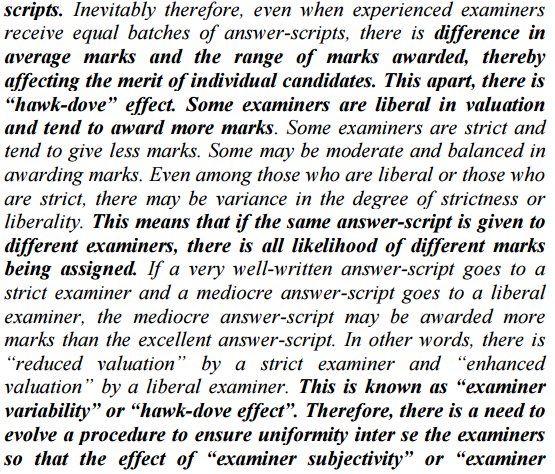

He further explains the moderation in detail here.
For years, CBSE and even other boards have been inflating marks in a bid to win a rat race to sky rocket percentages for securing admissions in Universities in India and abroad.

















